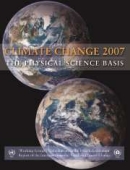The government’s amendments to the Emissions Trading Scheme became law this afternoon, thanks to support from the Maori Party [Stuff, Herald, Reuters]. Nick Smith called the changes “workable and affordable” and said that they struck “the right balance in protecting the future of our economy and our environment”, but Labour climate spokesman Charles Chauvel was scathing:
It is economically irrational, socially inequitable, environmentally counter-productive and fiscally unsustainable. And its hallmark has been one of poor procedure and hasty consideration.
But what does the new ETS mean for New Zealand’s emissions? The Science Media Centre is collating responses from the science community, and first out of the blocks is VUW associate professor Ralph Chapman:
The passing of today’s Climate Change Response amendment bill through the House is deeply disappointing. Every week, emerging climate science underlines the need for urgent action to cut emissions drastically, with developed countries especially needing to make cuts right now to avoid a global warming drift above 2 degrees, the guardrail against dangerous change. The Government’s amendment bill does way too little to bring down New Zealand’s emissions. The bill has good aspects (e.g. agriculture is included, eventually) but its overall weakness and lack of clarity about its impact on emissions will undermine New Zealand’s reputation and positioning for Copenhagen.
Deeply disappointing. Pretty much my reaction. NZ has now has a much steeper hill to climb in future than was necessary.
Update 28/11: Additional responses from science community, courtesy of the SMC:
Dr Jim Salinger, an Auckland-based climate scientist, comments:
“At present we appear to be bogged down in emission reduction schemes and targets. This thinking is short-term as the high emissions industries in the long run are doomed. We have the low-carbon technology –- which include many forms of renewable energy such as solar electric, solar thermal, wind, wave, tidal, geothermal and bio-energy. All we need to do is scale these technologies up rapidly and harvest the economies of scale.”
Suzie Greenhalgh, Senior economist in the Sustainability & Society team at Landcare Research, comments:
“The passing of the ETS ammendments sends positive signals about New Zealand’s desire to address global climate change, providing greater certainty to business and the population about the path New Zealand will follow. Given that most of the debate so far has been around the risks New Zealand faces with adopting the ETS, now perhaps the debate can switch to where potential opportunities may lie. The inclusion of agriculture, despite its omission in other national schemes, is also an important step for New Zealand’s management of greenhouse gas emissions and may just provide some of these opportunities.”
Associate Professor Euan Mason, of the School of Forestry at the University of Canterbury, comments:
“It is good that New Zealand has begun to address climate change, and if the energy sector is required to surrender credits earned from genuine CO2 sequestration then the ETS should begin to change our behaviour in helpful ways. In its deal with the Maori party the Government implicitly acknowledged that the ETS legislation markedly devalues pre-1990 forest land and that the few credits offered to owners of such land are inadequate compensation. Offering owners of pre-1990 forests the option of replanting elsewhere after land use conversion as an alternative to paying conversion tax would have gone some way to softening the impact on land values. As it stands only a proportion of these land owners have been adequately compensated, and the remainder, both Maori and Pakeha, no doubt feel a sense of injustice.”
Like this:
Like Loading...
 Tomorrow morning, a large chunk of New Zealand’s much debated Emissions Trading Scheme comes into effect. Forestry’s already been in it for two years, but July 1st is the day that the liquid fuels and electricity generation sectors start to have to account for their emissions, and it’s the first day that consumers might see a change in fuel and electricity prices that can be blamed on the ETS. Last week’s National Business Review had a pretty good overview of the state of play here. The scheme has also come in for some robust criticism in a new book, The Carbon Challenge, by Sustainability Council executive director Simon Terry and VUW economist Geoff Bertram (of which more in another post soon, I hope).
Tomorrow morning, a large chunk of New Zealand’s much debated Emissions Trading Scheme comes into effect. Forestry’s already been in it for two years, but July 1st is the day that the liquid fuels and electricity generation sectors start to have to account for their emissions, and it’s the first day that consumers might see a change in fuel and electricity prices that can be blamed on the ETS. Last week’s National Business Review had a pretty good overview of the state of play here. The scheme has also come in for some robust criticism in a new book, The Carbon Challenge, by Sustainability Council executive director Simon Terry and VUW economist Geoff Bertram (of which more in another post soon, I hope).
 “…serious and growing questions over the standards and credibility of the international body whose job it is to determine the scientific truths about climate change.”
“…serious and growing questions over the standards and credibility of the international body whose job it is to determine the scientific truths about climate change.”  Who’s this supporting the NZ C”S”C’s idiotic attempt to cast doubt on the NZ temperature record? Why, it’s none other than
Who’s this supporting the NZ C”S”C’s idiotic attempt to cast doubt on the NZ temperature record? Why, it’s none other than